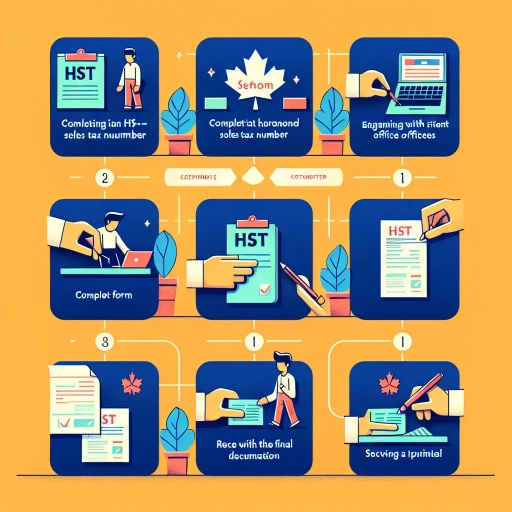How To Get Hst Number

Understanding What a HST Number is
The Basics of HST Number
The Harmonized Sales Tax (HST) number is a combination of the federal Goods and Services Tax (GST) and the Provincial Sales Tax (PST). As a service or product provider, the Canadian government requires you to charge this tax to your clients or customers, especially if your annual income surpasses a certain threshold. This act ensures that tax responsibilities are shared fairly among citizens thus fueling the economic development of the country. As a business, getting a HST number indicates legal compliance and can boost your credibility.
Importance of a HST Number
Having a HST number is crucial for your business for several reasons. For one, it permits you to collect taxes on behalf of the government. This is a legal obligation for businesses earning more than $30,000 in four consecutive quarters. Failure to comply can result in financial penalties or legal consequences. Additionally, possessing a HST number allows you to claim Input Tax Credits (ITCs) – credits for taxes paid on business purchases and expenses. In essence, this means you can recover the taxes you pay in the course of your business operations, thus improving your bottom line.
Who Should Get a HST Number
While a HST number is largely associated with businesses, it's not just companies that are required to obtain one. Freelancers, consultants, and other independent providers of taxable goods or services are also obligated to register when their revenue exceeds the $30,000 threshold. This tax rule applies irrespective of the business entity structure - corporation, sole proprietor, or partnership. It’s worth mentioning that even if you are below the threshold, voluntary registration may be beneficial in terms of claiming ITCs.
The Process of Registering for a HST Number
Registration Platforms
The Canada Revenue Agency (CRA) provides different avenues through which businesses can register for a HST number. These platforms include online via the Business Registration Online (BRO), by phone, mail, or fax. Online registration standouts for being quick, convenient, and available at any time. However, regardless of the chosen platform, it's critical that you practice correctness and honesty during the registration process to avoid future complications.
Information Needed for Registration
When registering for a HST number, you need to provide details about you and your business, such as the business name, physical address, description of your goods or services, and the expected annual gross income. If you are a sole proprietor, you will also need to provide your Social Insurance Number. These details help in the creation of a tax account that helps the CRA track your tax obligations and payments.
Time Frame for Registration
It’s recommended to register for a HST number at least 30 days before conducting taxable sales or services. However, if your revenue surpasses the $30,000 limits before the 30-day period ends, you become responsible for HST collection from the day you exceeded this limit. Once you register, the CRA will notify you of your obligation to file tax returns - a process simplified by online platforms like My Business Account.
Tips for Managing Your HST Number
Record Keeping
Meticulous record keeping is key when it comes to managing your HST number efficiently. Maintain an up-to-date record of your sales, purchases, ITCs, and tax remittances. This practice not only helps in ensuring accuracy when reporting your taxes but also serves as a proof of compliance - which is crucial during an audit.
Filing and Payment
As a registered HST number holder, it's crucial to file your returns and make payments promptly. Delays or inaccuracies can result in penalties, interests or other legal implications. It is thus advisable to invest in a reliable accounting system or engage a professional to help in tax management. This is especially vital for businesses with complex tax responsibilities.
Audit and Compliance
Compliance, including tax audits, is part of the HST number management process. Your business could be randomly selected for an audit or due to inconsistencies in your records. In such cases, having a clear, organized, and honest record system can make the audit process less daunting. Additionally, try to foster a respectful, cooperative relationship with the auditors as this can impact your overall audit experience.